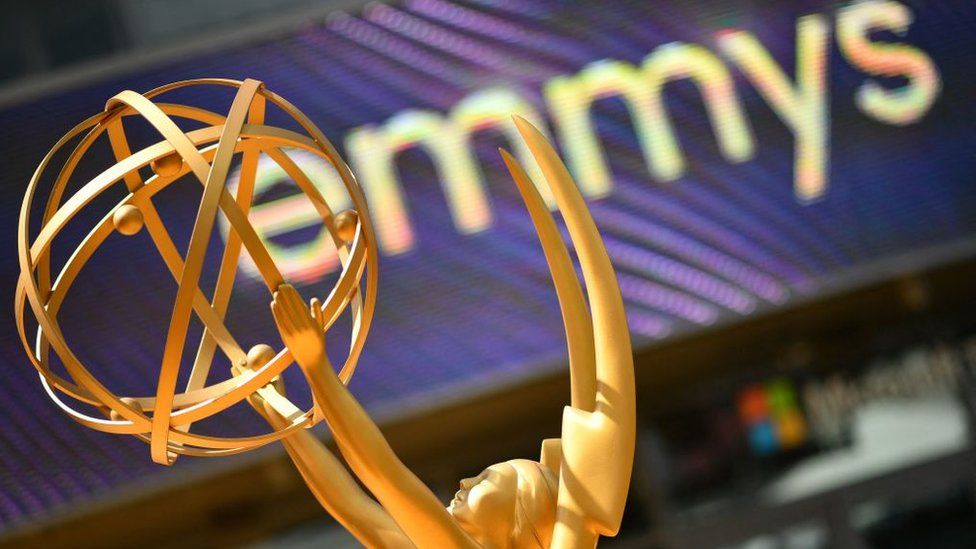ESPN apologises for Emmy entries won with fake names
- Published

The Emmy Awards are given for outstanding achievement in the television industry
ESPN has returned more than 30 Emmy statuettes after the award hosts uncovered a ploy in which some network employees used fake names to circumvent eligibility rules.
The network has said the ploy was "a misguided attempt" to recognise on-air talent that were not eligible for certain categories.
The awards won were reportedly re-engraved with the real names of the on-air personalities.
The sports network has apologised.
Details of the ploy were first uncovered in a report on Thursday by sports publication The Athletic, external.
The National Academy for Television Arts and Sciences (NATAS), the organisation behind the Emmys, told The Athletic that it had "identified a number of fictitious credits submitted by ESPN to multiple Sports Emmys competitions".
NATAS then notified ESPN's senior management of this finding, who has since apologised and reprimanded those who were responsible.
The Athletic's report centred around ESPN's "College GameDay" programme, which nabbed eight Emmys for Outstanding Weekly Studio Show between 2008 and 2018.
Until 2023, that category prohibited submissions from on-air talent in an effort to avoid duplicate wins for a single programme.
On-air personalities could instead submit for other categories, like Outstanding Host or Emerging On-Air Talent.
In a bid to secure awards for their on-air talent, the network reportedly circumvented eligibility rules by submitting entries with fake names credited for the programme.
The fake names were similar to those of the on-air personalities, with the same initials but slightly altered.
There is no evidence suggesting the on-air personalities were aware of the submissions or the ploy.
In a statement to the BBC, ESPN spokesperson Julie McKay said the ploy involved award submissions that may date back as far back as 1997.
"This was a misguided attempt to recognize on-air individuals who were important members of our production team, " Ms McKay said in an email. "Once current leadership was made aware, we apologized to [The National Academy for Television Arts and Sciences] for violating guidelines."
Ms McKay said the network has brought in outside counsel to conduct "a full and thorough investigation." She added those who were responsible were disciplined by ESPN.
Along with being forced to return the statuettes, NATAS said it has also imposed a one-year disqualification from award eligibility for the senior leadership of "College GameDay".
Related Topics
- Published28 July 2023
- Published11 January